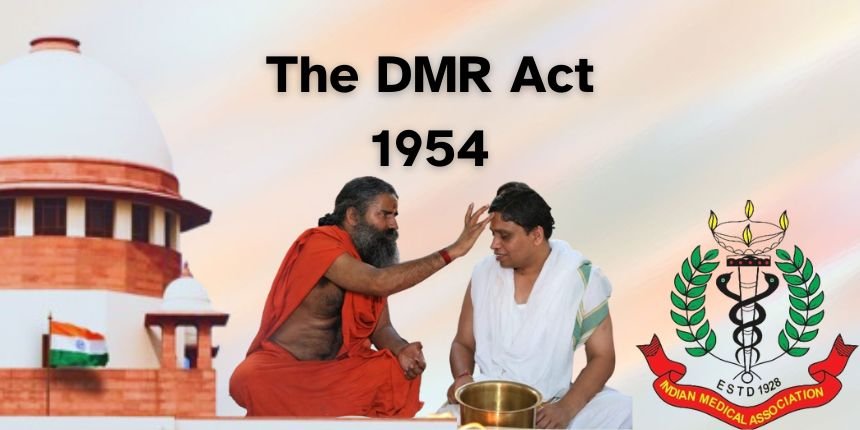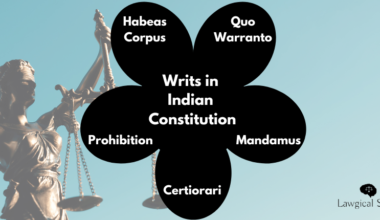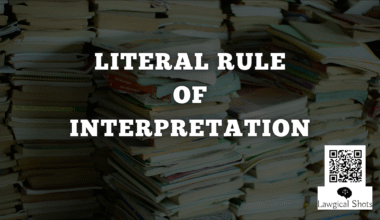Ye davai khayein aur Blood Pressure ki bimari se hamesha ke liye mukti payein! Ye churan karega diabetes ka 100% ilaaj! Familiar to such ads?
You already know where this is going. Yes, we are addressing the ongoing Patanjali Advertisement controversy which has troubled Patanjali’s Baba Ramdev and Acharya Balakrishna for a couple of months. While manufacturers and marketers are bound to bring genuine information about goods and services as per the Consumer Protection laws, there is another vulnerable section of the society dealing with some sort of disease, disorder or conditions. Baba Ramdev has been the recognized Yoga Guru for the past 2-3 decades. He was also recognized as a Businessman being the face of Patanjali Ayurved. However, this is a tough phase for the brand as well as its brand ambassador. The Indian Medical Association has dragged Patanjali and its faces before the Supreme Court of India for its ‘Misleading Advertisements’.
Patanjali Advertisement Controversy – Background
It was alleged on behalf of IMA that Patanjali advertisements violated several provisions of the DMR Act 1954. In fact, the Supreme Court reprimanded Patanjali – Baba Ramdev and Acharya Balakrishna for ignoring their orders and relentlessly airing the ads. The Apex Court sought personal appearance of the two and even warned of contempt proceedings against them. This followed Baba Ramdev and Acharya Balakrishna personally apologizing before the Bench. They also reportedly published Patanjali apology ad in newspapers, and the size of those Patanjali’s apology columns also made headlines due to Court’s remarks.
Even the Union Government is also being lashed at by the Apex Court for its inaction against the Haridwar based brand. With this background, it is time to know what this DMR Act is, the root cause of the Patanjali advertisement controversy.
Drugs and Magic Remedies (Objectionable Advertisements) Act, 1954
The DMR Act, 1954 aims to control advertisements of drugs and prohibit ads of legal remedies allegedly possessing magic qualities, in certain cases. Here, we discuss the various important provisions under the Act.
Advertisements covered under DMR Act
The Section 2(a) of the Act defines ‘advertisement’. The same includes any notice, circular, label, wrapper, any notice, circular, label, wrapper, document or announcement made orally or by producing/transmitting light, sound or smoke.
Also read – Right to sleep a fundamental right?
Magic Remedies
Section 2(c) of the 1954 Act states that ‘magic remedy’ includes any talisman, mantra, kavacha or any other charm allegedly possessing miraculous powers for diagnosis, cure, mitigation, treatment or prevention of any human or animal disease or any organic bodily function.
Prohibition of Advertisement of Certain Drugs
Section 3 of the DMR Act prohibits drug advertising for treatment of certain diseases and disorders. These include procurement of miscarriage or prevention of conception in women; maintenance or improvement of the human capacity of sexual pleasure; correcting menstrual disorder in women; diagnosis, cure, mitigation, treatment or prevention of any disease, disorder or condition specified in the Schedule or Rules made under the Act.
Prohibition of Misleading Advertisements Relating to Drugs
Section 4 of the DMR Act,1954 restricts anyone from taking part in publication of any advertisement related to a drug if such ad:
- directly or indirectly gives a false impression regarding true character of the drug; or
- makes a false claim for the drug; or
- is otherwise false or misleading in any material particular.
Misleading Ads by Patanjali
The legal action initiated by the Indian Medical Association particularly targets the misleading component in Patanjali Ads. The Court was also strict that most of the medicinal products advertised in Patanjali ads claim to bring 100% cure, further belittling allopathic treatments.
Prohibition on Advertising Magic Remedies
Section 5 of the 1954 Act prohibits a person engaged in a profession of administering magic remedies from publishing an advertisement referring to any magic remedy directly or indirectly claiming to be efficacious for diseases/disorders mentioned in Section 3 of the Act.
Prohibition on Import/Export of Advertisements
Section 6 of the Act restricts any import or export of documents containing advertisement similar to that mentioned in Section 3, 4 or 5 of DMR Act. It further provides that documents containing such ads shall be taken as goods whose import/export has been prohibited under Section 19 of the Sea Customs Act, 1878.
Penalties under DMR Act
Section 7 of the Act provides for penalty in case of contravention of the provisions. Any person convicted under the provisions of DMR Act, 1954 for the first time is punishable with imprisonment extending to 6 months, with or without fine. The imprisonment is extended to 1 year, with or without fine for subsequent conviction, . Section 12 of the Act makes an exception for persons acting in good faith, against any suit, prosecution or other legal proceedings.
Who is punishable under DMR Act?
Any person who commits any of the acts prohibited under the 1954 Act is punishable with the punishment provided. Section 9 of the Act covers offences by companies. Thus, a person acting for the company may be punished for any of the prohibited actions.
Procedure under DMR Act
Section 8 of DMR Act discusses the powers of entry and search by the authorities. DMR ActSection 9A of the same further makes the offences cognizable. Section 10 providing for jurisdiction for trial states that a Presidency Magistrate or Magistrate of First Class shall try the offences under DMR Act 1954.
Diseases/Disorders/Conditions under DMR Act
| Appendicitis | Arteriosclerosis | Blindness |
| Blood poisoning | Bright‟s disease | Cancer |
| Cataract | Deafness | Diabetes |
| Diseases and disorders of the brain | Diseases and disorders of the optical system | Diseases and disorders of the uterus |
| Disorders of menstrual flow | Disorders of the nervous system | Disorders of the prostatic gland |
| Dropsy | Epilepsy | Female diseases (in general) |
| Fevers (in general) | Fits | Forms and structure of the female bust |
| Gallstones, kidney stones and bladder stones | Gangrene | Glaucoma |
| Goitre | Heart diseases | High or low blood pressure |
| Hydrocele | Hysteria | Infantile paralysis |
| Insanity | Leprosy | Leucoderma |
| Lockjaw | Locomotor ataxia | Lupus |
| Nervous debility | Obesity | Paralysis |
| Plague | Pleurisy | Pneumonia |
| Rheumatism | Ruptures | Sexual impotence |
| Smallpox | Stature of persons | Sterility in women |
| Trachoma | Tuberculosis | Tumours |
| Typhoid fever | Ulcers of gastrointestinal tracts | Venereal diseases, including syphilis, gonorrhea, soft chancre, venereal granuloma and lympho granuloma |
FAQs on DMR Act and Patanjali Ad Controversy
Q- What is Patanjali’s advertisement case?
A- The root cause of the Patanjali ad controversy is criticism of allopathy while promoting Ayurvedic medicines in Patanjali advertisements. This led the Indian Medical Association to approach the Court against Patanjali’s products portrayed to be the ultimate and infallible cure to diseases.
Q- What is the Supreme Court warning on Patanjali?
A- While dealing with the case initiated by the Indian Medical Association, the Apex Court had asked Patanjali to restrict airing the advertisements in question and making any casual statements.However, the same did not stop.In fact, Baba Ramdev and Acharya Balakrishna went a step ahead, conducted a Press Conference making similar claims promoting their products. This led the Supreme Court turn harsh on Patanjali Advertisement controversy.
Q- What is DMR in pharmaceutical jurisprudence?
A- It refers to Drugs and Magic Remedies (Objectionable Advertisements) Act, 1954. The law aims at controlling and prohibiting advertisements of drugs for remedies allegedly possessing magic qualities.
Q- What are the Offences and penalties under DMR Act 1954?
A- Offences under the DMR Act include misleading ads, those of certain drugs, magic remedies, etc. The punishment for first time conviction is 6 months with or without fine. However, subsequent conviction may land a person into jail for a year.








